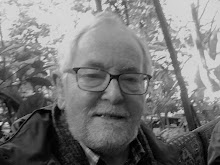What is this thing called Prayer?
In my reflections last week on the terrorist attacks in
Paris, I wrote “prayer is not a soft option – not just ‘the only thing we can
do.’ It’s a real way of expressing hope and trust, as well as our desire for a
world in which there is no hatred.”
It is ironic that at the end of a week in which TV
reports showed many posters saying ‘Pray for Paris’, that the body responsible
for cinema adverts blocked a simple and inoffensive (indeed slightly anodyne)
film from the Church of England showing a variety of people praying the Lord’s
Prayer. Many have objected to that decision (including Richard Dawkins!) – but
perhaps it challenges us to ask ourselves what we are doing when we pray.
To begin with, we need to affirm that there are times
when cannot not pray (double
negative intended.) In the face of
something like the Paris attacks, with unimaginable loss and destruction; when
we cannot explain a disaster or find words to express our grief – prayer of
some sort is a natural and appropriate response. What else can we do? So, even in
a predominantly secular country like France, people flocked to churches for
vigils of prayer. Others lit ‘votive’ candles at the site of the murders, in
voiceless prayer. Philosophical musing, sociological reasoning or political assertions
fail to meet the human need - to express sorrow and search for some kind of meaning.
I can see a danger that in saying that I could be implying
that prayer – whilst being natural and appropriate – is little more than a
gesture. It has a cleaning and palliative effect (which is good), but that is
all. Indeed, the words I quoted from my last posting do seem to say just that!
Praying makes us feel better- but it
does not make any difference: after all, the dead are still dead, and the threat
of terrorism remains. Are we merely lighting a candle in the dark?
In itself that is not unimportant. Affirming hope is a
refusal to give way to the despair and confusion that acts of terror seek to
create. But prayer does not just affect me.
It can and does change people and situations. Certainly, it does not reverse
the effects of the violence; the death toll is unchanged, the bloodstains
remain. And yet the situation is not the same as if we had never prayed. We
consciously draw closer to God, and so bring him more fully into the darkness
and despair.
Our problem is that we have tamed prayer. William McNamara writes of a priest responding to a
request to ‘say a little prayer’ – “I will not! There are no little prayers! Prayer enters the
lion’s den, brings us before the holy where it is uncertain whether we will
come back alive or sane...” Biblically, prayer is coming before the Living God,
wrestling with him, even challenging him - and allowing him to turn us inside
out. It is “a fearful thing to fall into the hands of the living God” – which
means that we should expect things to
happen after we pray. Really opening ourselves to God means we will never be
the same – nor will the world in which we live and to which we are called to
witness.
Prayer does indeed change us – but not in the commonly
assumed sense that it makes us a bit nicer.
When we pray for the victims of violence, and for its
perpetrators; when we pray for the marginalised people living in the soul-destroying
suburbs of large European cities like Paris and Brussels, and for those who
exercise power and influence public opinion, we do this in order that something
will change. We cannot know how it
will change; prayer is indeed an act of faith.
The Lord’s Prayer is full of bold aspirations and
subversive requests – Your Kingdom
come; Your will be done on earth;
Forgive us... as we forgive; Deliver us from evil. Constant repetition has
dulled our spirits, so that we no longer realise what we are asking for! So the
cinema censors have done us a favour – both by bringing the Lord’s Prayer film
before a much larger audience, and by challenging us believers to think more
deeply about what we pray. So let us indeed pray!

